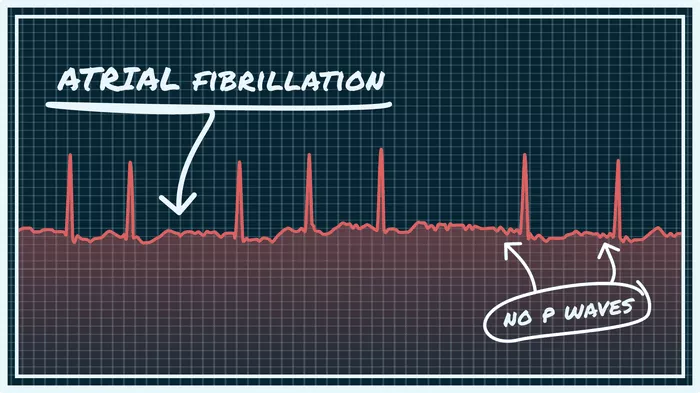Myocarditis, an inflammatory condition of the heart muscle, can pose significant challenges for individuals seeking to maintain an active lifestyle. Exercise is known for its numerous health benefits, including cardiovascular fitness, weight management, and stress reduction. However, when it comes to myocarditis, there are important considerations regarding the safety and appropriateness of exercise. In this article, we will explore the topic of exercising with myocarditis, examining the potential risks and benefits, as well as providing recommendations for individuals navigating this condition.
What Is Myocarditis?
Myocarditis is characterized by inflammation of the heart muscle, which can impair its ability to pump blood effectively. This inflammation is often caused by viral infections, although it can also result from bacterial or fungal infections, autoimmune diseases, or exposure to toxins. Myocarditis can range in severity from mild and self-limiting to severe and life-threatening, depending on factors such as the underlying cause, extent of inflammation, and individual patient characteristics
Exercise Recommendations for Myocarditis Patients
The decision to exercise with myocarditis should be made in consultation with a healthcare provider, preferably a cardiologist or other qualified medical professional familiar with the condition. In general, individuals with myocarditis should avoid strenuous physical activity until the inflammation has resolved and cardiac function has returned to normal.
This may involve a period of rest and restriction from vigorous exercise, particularly activities that place a significant strain on the heart, such as high-intensity exercise or heavy weightlifting.
Potential Risks of Exercise with Myocarditis
Exercising with myocarditis carries the risk of exacerbating inflammation, worsening cardiac function, and potentially triggering arrhythmias or other serious complications. Vigorous physical activity can place additional stress on the heart, increasing myocardial oxygen demand and potentially worsening myocardial injury.
Furthermore, individuals with myocarditis may be more susceptible to arrhythmias or sudden cardiac arrest during exercise, particularly if the inflammatory process has compromised the heart’s electrical system.
Benefits of Exercise Moderation
While strenuous exercise is generally contraindicated in individuals with myocarditis, moderate physical activity may still be beneficial for overall health and well-being. Light to moderate-intensity exercise, such as walking, cycling, or swimming, can help improve cardiovascular fitness, promote weight management, and enhance mood and mental well-being.
However, it is crucial to approach exercise with caution and listen to your body, avoiding activities that cause chest pain, shortness of breath, palpitations, or other concerning symptoms.
Gradual Return to Exercise
Once myocarditis has resolved and cardiac function has normalized, individuals may gradually reintroduce exercise into their routine under the guidance of a healthcare provider. This may involve starting with low-intensity activities and gradually increasing the duration and intensity as tolerated.
Cardiac rehabilitation programs, supervised by trained professionals, can provide a structured approach to exercise training and monitoring for individuals recovering from myocarditis or other cardiac conditions.
Monitoring And Precautions
Regardless of the type or intensity of exercise, individuals with a history of myocarditis should be vigilant about monitoring their symptoms and seeking medical attention if any concerning signs or symptoms arise. It is essential to pay attention to warning signs such as:
- chest pain
- shortness of breath
- dizziness, fainting
- palpitations during
- after exercise
- to seek prompt medical evaluation
Conclusion
In conclusion, while regular exercise is an important component of a healthy lifestyle, individuals with myocarditis must approach physical activity with caution and follow appropriate guidelines to minimize the risk of complications. While strenuous exercise should generally be avoided during the acute phase of myocarditis, moderate physical activity may still be beneficial once inflammation has resolved and cardiac function has normalized.
However, it is essential to consult with a healthcare provider before starting or modifying an exercise program, as individual recommendations may vary depending on factors such as the severity of myocarditis, cardiac function, and overall health status.
FAQs
Can Myocarditis be Recovered?
Yes, myocarditis can be recovered, particularly if it is diagnosed and treated promptly. The prognosis for myocarditis depends on various factors, including the underlying cause, extent of inflammation, presence of complications, and individual patient characteristics.
In many cases, myocarditis resolves on its own with supportive care, such as rest, medications to manage symptoms and inflammation, and monitoring for potential complications. However, some individuals may experience persistent symptoms or long-term complications despite treatment.
Will Myocarditis Heal on Its Own?
In many cases, myocarditis will heal on its own without specific medical treatment. The body’s immune system is typically able to resolve the inflammation over time, allowing the heart muscle to recover and regain normal function. However, the timeline for recovery can vary widely depending on factors such as the severity of inflammation, underlying cause, and individual patient characteristics.
Some individuals may experience rapid improvement in symptoms and cardiac function, while others may require a more extended period of recovery. It’s essential for individuals with myocarditis to follow their healthcare provider’s recommendations for rest, activity modification, and medication therapy to support the healing process.
Does Myocarditis Require Surgery?
In most cases, myocarditis does not require surgery as the primary treatment. The management of myocarditis typically involves supportive care, including rest, medications to manage symptoms and inflammation, and monitoring for potential complications such as arrhythmias or heart failure. In rare cases, individuals with severe myocarditis or complications such as cardiac tamponade or ventricular arrhythmias may require invasive procedures or surgery to address specific issues.


